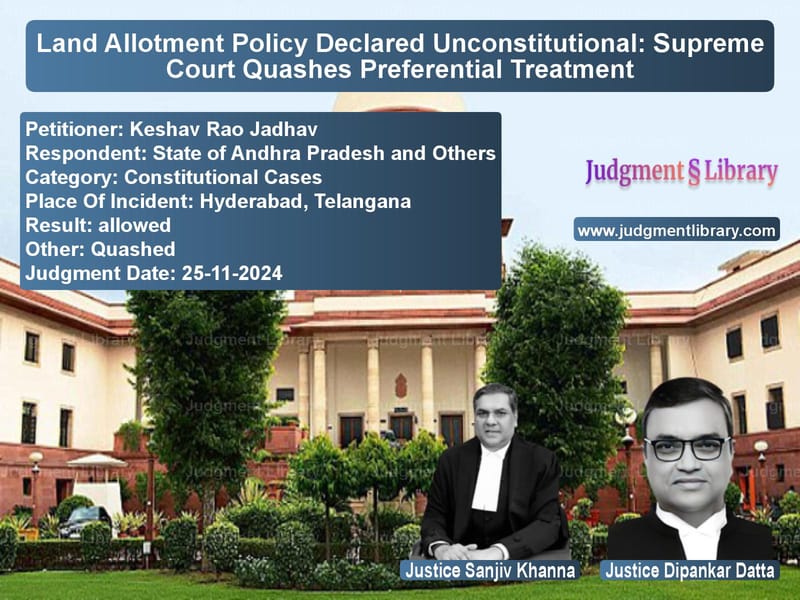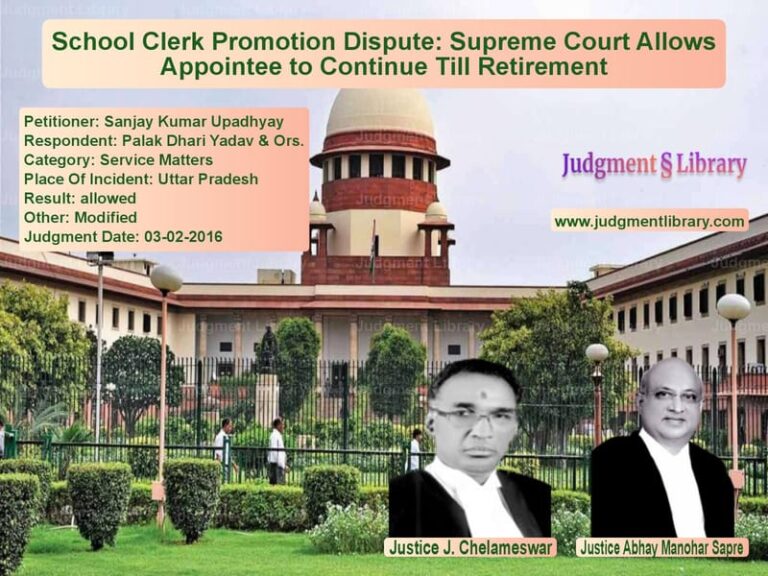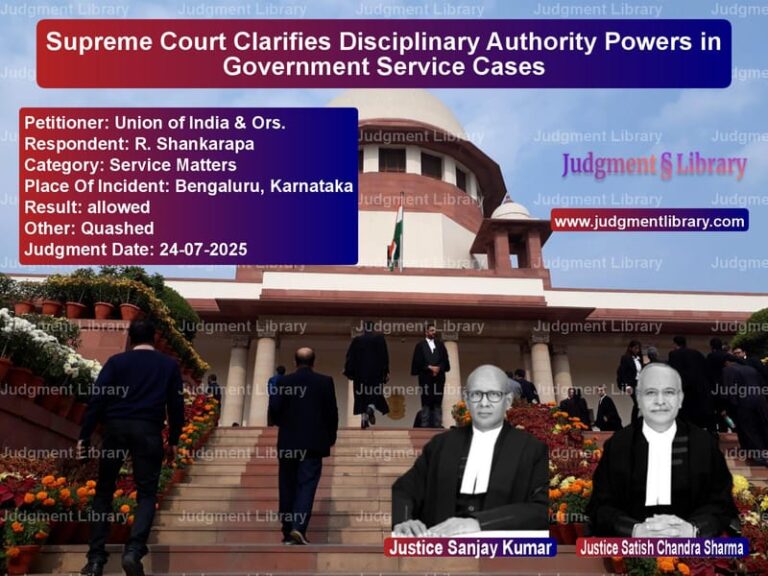Land Allotment Policy Declared Unconstitutional: Supreme Court Quashes Preferential Treatment
The Supreme Court of India, in its landmark judgment, addressed the issue of arbitrary land allotment in Telangana. The case arose from multiple appeals challenging the High Court of Andhra Pradesh’s decision, which partially struck down the Government Orders (GoMs) issued for land allotment. The key contention revolved around whether the preferential allotment of government land to certain privileged sections—such as Members of Parliament (MPs), Members of the Legislative Assembly (MLAs), All India Services (AIS) officers, Judges, and journalists—was constitutional.
Background of the Case
The case stemmed from multiple writ petitions filed by individuals and organizations challenging the Government Orders (GoM Nos. 243, 244, 419-425, and 551) that provided preferential allotment of government land at basic rates to selected categories. The land parcels, situated in Hyderabad and its surrounding areas, were allocated through Cooperative Housing Societies to these select groups.
The petitioners contended that such allotments violated Article 14 of the Indian Constitution, which guarantees equality before the law. They argued that the land, being a scarce resource, should not be distributed arbitrarily to privileged classes at concessional rates while depriving the general public.
High Court’s Ruling
The High Court, in its ruling dated 05.01.2010, quashed the specific Government Orders that facilitated the preferential land allotments. It held that these policies were arbitrary, lacked a reasonable classification, and violated the principle of equality. The Court further directed that the land parcels be restored to the government and fresh allotments be carried out under a revised policy ensuring transparency and fairness.
Supreme Court’s Observations
On appeal, the Supreme Court upheld the High Court’s decision, categorically declaring the preferential allotments unconstitutional. The Court held that state largesse cannot be distributed arbitrarily to a select few without a legitimate public purpose.
Referring to the principles established in earlier cases, the Supreme Court emphasized that government action must be in line with Article 14. It stated:
“The Government cannot act arbitrarily at its sweet will and, like a private individual, deal with any person it pleases. It must act in conformity with standards or norms that are not arbitrary, irrational, or irrelevant.”
The Court also held that the classification of MPs, MLAs, AIS officers, and Judges as a special category for concessional land allotment was irrational and discriminatory. It observed that such individuals, by virtue of their positions, do not belong to a weaker section of society and therefore do not require preferential treatment.
Key Arguments of the Petitioners
- The allocation of land worth thousands of crores at basic rates to privileged sections was arbitrary and lacked a legitimate public purpose.
- The policy violated Article 14 by creating an unreasonable classification.
- Land should be distributed equitably through public auctions or fair selection mechanisms.
- The preferential allotment deprived genuinely needy individuals of housing opportunities.
Arguments by the Respondents
- The State argued that MPs, MLAs, AIS officers, and Judges formed a distinct class deserving of government support.
- The policy was designed to provide stability and housing security to government servants.
- The respondents cited past instances of land allotments to justify the current policy.
Supreme Court’s Final Verdict
The Supreme Court categorically quashed the Government Orders, ruling that the allotments violated the fundamental right to equality. It directed:
- The restitution of all land parcels to the government.
- Refunds to the Cooperative Societies and members who had paid for land.
- Future land allocations to be carried out transparently, with due consideration to public interest.
The judgment reaffirmed the principle that state resources must be distributed equitably and in accordance with constitutional principles.
Petitioner Name: Keshav Rao Jadhav.Respondent Name: State of Andhra Pradesh and Others.Judgment By: Justice Sanjiv Khanna, Justice Dipankar Datta.Place Of Incident: Hyderabad, Telangana.Judgment Date: 25-11-2024.
Don’t miss out on the full details! Download the complete judgment in PDF format below and gain valuable insights instantly!
Download Judgment: keshav-rao-jadhav-vs-state-of-andhra-prad-supreme-court-of-india-judgment-dated-25-11-2024.pdf
Directly Download Judgment: Directly download this Judgment
See all petitions in Fundamental Rights
See all petitions in Constitution Interpretation
See all petitions in Legislative Powers
See all petitions in Public Interest Litigation
See all petitions in Separation of Powers
See all petitions in Judgment by Sanjiv Khanna
See all petitions in Judgment by Dipankar Datta
See all petitions in allowed
See all petitions in Quashed
See all petitions in supreme court of India judgments November 2024
See all petitions in 2024 judgments
See all posts in Constitutional Cases Category
See all allowed petitions in Constitutional Cases Category
See all Dismissed petitions in Constitutional Cases Category
See all partially allowed petitions in Constitutional Cases Category







